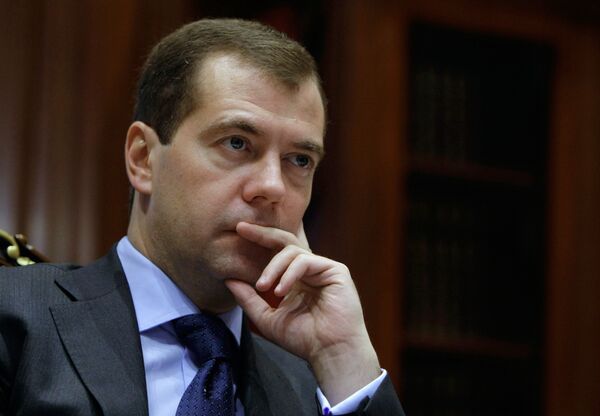MOSCOW, November 7 (RIA Novosti) - The fall of the Berlin Wall was a positive event, but not all the hopes that arose after it came down were realized, Russian President Dmitry Medvedev told German media.
Medvedev is due in the German capital on November 9 to take part in events marking the 20th anniversary of the fall of the Berlin Wall.
"The Berlin Wall was always a symbol of the division of Europe," he said. "Its fall was seen as a continuation of the path to European unity."
"Some of the hopes that I and people in my country had then were realized, and some them were not," Medvedev went on.
He also expressed regret that since the fall of the Berlin Wall, relations between Russia and European countries had not always been ideal.
"In many issues connected to the destiny of Europe, and Russia's ties with European countries, things could have developed slightly differently," he said.
The Berlin Wall, which was erected in 1961 in order to divide the German Democratic Republic (GDR) from the Federal Republic of Germany, was the symbol of the Iron Curtain between Western Europe and the Eastern Bloc for decades.
After its erection, around 5,000 people successfully climbed, tunneled under or flew over the wall into West Germany. Estimates as to the number of people who lost their lives while trying to escape range from 98 to 200.
The fall of the wall on November 9, 1989, was the first step toward German reunification, which was formally concluded on October 3, 1990. The wall fell after Soviet leader Mikhail Gorbachev had introduced the policy of perestroika in the USSR, which led to a wave or revolutionary sentiments across Eastern Europe.




